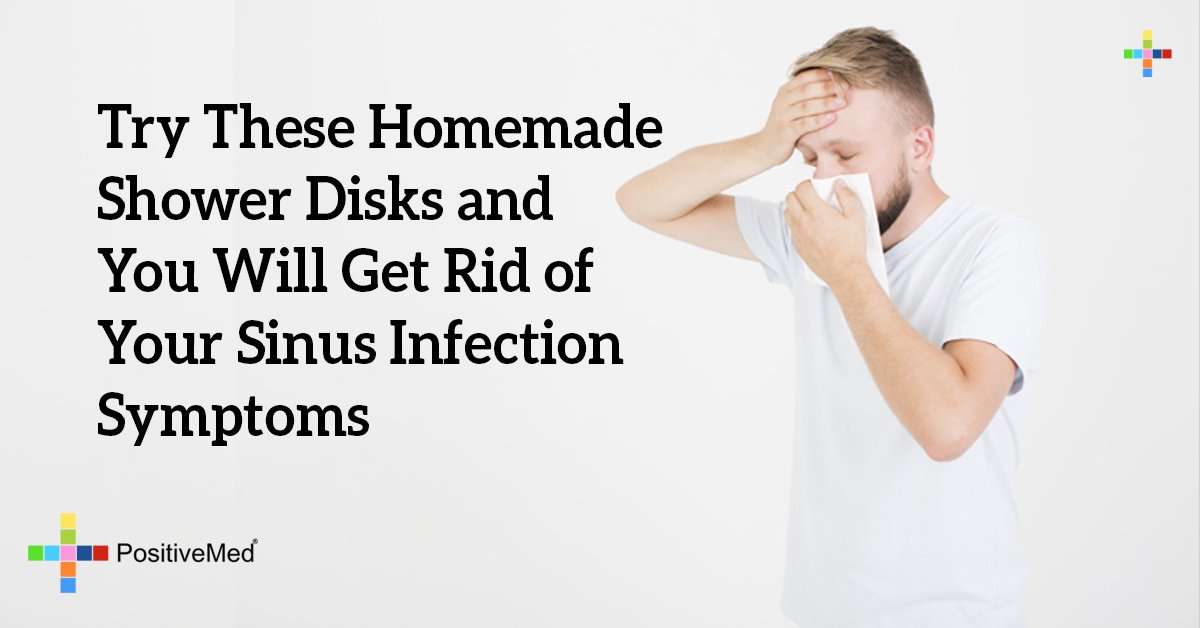How Is Acute Sinusitis Diagnosed
Acute sinusitis is usually diagnosed by discussing all of your symptoms and medical history with your doctor. In a physical exam, your doctor will look at the ears, nose, and throat to check for any blockage, swelling, and drainage. If allergies are suspected, your doctor will can have an allergy test performed to determine what allergens might be the cause of your sinusitis.
What Causes Chronic Sinus Infection
Multiple factors acting together usually contribute to chronic sinusitis.
People with allergies are more prone to develop chronic sinusitis. About one in five people with chronic sinusitis also have asthma. This is because the linings of your nose and sinuses are in continuation with the linings of your lungs. These people are also likely to have nasal polyps .
A bacterial or viral infection can also trigger the condition. The infection is often low grade. The bacteria confine themselves in stubborn biofilms, making it difficult for your immune system or antibiotics to find and attack them.
An overlap of additional factors such as smoking, environmental pollutants, and deviated septum, further complicate the picture of chronic sinusitis.
It would be more appropriate to say that if youre already prone to allergies and nasal polyps, it becomes easier for harmful bugs, especially fungi to penetrate your sinuses. Likewise, a weak immune system makes you more susceptible to catch bacterial, viral, or fungal sinus infection.
A sinus that is inflamed and swollen can no longer sweep away the excess mucus and harmful agents due to the blockage of tiny hairs that facilitate this function.
Types Of Chronic Sinusitis Or Chronic Sinus Infections
While acute sinusitis often involves an infection, chronic sinusitis does not. Sometimes, the long-term illness is caused by an infection that hasn’t cleared up properly, but most often the exact cause of chronic sinusitis isn’t known.
But clinicians may categorize chronic sinusitis into one of three types depending on the features present.
The most common type of the illness, chronic sinusitis without nasal polyposis, involves swelling and inflammation of the mucous membranes by various non-polyp factors, such as allergies or irritation and infections.
Chronic sinusitis with nasal polyposis, on the other hand, involves nasal polyps that are large enough to clog the sinus. It’s not always clear why some people develop these polyps and others dont.
In chronic sinusitis with fungal allergy, people experience a strong allergic reaction to fungi in the air, which causes their mucous membranes to produce a thick, dense mucus.
Also Check: What Medicine Is Good For Sinus Allergies
What Is A Fungus
A fungus is a living organism. It cant make its own food, so it takes its nutrients from decomposing matter in the soil, water or plants where it lives. Fungi live in the air, on surfaces, and on humans and other animals.
Scientists classify fungi in groups. They include mold, yeasts and mildew. Some fungi are big enough to see , and some are so small you can only see them with a microscope.
There are more than 100,000 species of fungi. They live all around us, and most arent dangerous. But some fungi can invade the body and multiply, leading to serious health problems. Different types of fungi cause infections in many parts of the body. Some examples are yeast infections, thrush and toenail fungal infections.
Are Sinus Infections Contagious

A sinus infection caused by a virus is contagious. When you sneeze or cough, the virus can travel in droplets of moisture through the air. If another person breathes in the virus, they might develop a cold that turns into a sinus infection. In order to limit the spread of sinus infections, remember to cover your nose and mouth when you cough or sneeze. And wash your hands frequently to avoid leaving the virus on objects that you touch.
If your sinus infection is caused by a bacteria or fungus, its not contagious. But you should still wash your hands frequently and cover your nose and mouth when you cough and sneeze.
Read Also: Will Zyrtec Help Sinus Infection
How To Get Relief From Sinusitis
If youve ever struggled to find relief from a sinus infection, youre not alone. Its a condition that impacts over 30 million Americans a year. In the US alone, sinusitis accounts for roughly 70 million days of decreased activity each year.
And, it seems that everyone is looking for a quick fix so they can get on with their daily activities. That being said…
Treatment And Medication Options For Sinus Infection
Up to 70 percent of people with acute sinusitis recover without prescribed medications, according to the American Academy of Allergy, Asthma & Immunology .
Treatment for acute sinus infections focus on relieving symptoms, such as by:
- Drinking lots of fluids and getting plenty of rest
- Flushing out the sinuses with a saline nasal wash like a Neti Pot or a saline nasal spray
- Inhaling steam several times a day
- Using a humidifier
- Resting a warmed, moist washcloth or a warm compress over your nose and cheeks
Recommended Reading: Advil Cold And Sinus Dosage
When To Go To A Doctor For A Sinus Infection
An untreated sinus infection can turn into a chronic infection, so its important to see the doctor if your symptoms arent improving on their own. We recommend making an appointment with your doctor if:
- Your symptoms havent improved after two days of at-home treatment
- You have cold symptoms that last for 10 days
- You have a fever of 101 degrees Fahrenheit or higher
- Youre experiencing severe pain in the upper part of your face or your teeth
- You have facial pain from the bridge of your nose to your lower eyelid
- You notice thick and discolored mucus
- You have mild face pain for a month or longer
How Long Do Antibiotics Take To Work On Sinus Infections
Often, sinus infections are treated with antibiotics. However, your doctor will determine the best treatment based on the root cause of your sinus infection. If antibiotics are prescribed, you may want to know how long it will be before you start to experience relief from symptoms.
Read on to find out how sinus infections are diagnosed, when your doctor may prescribe antibiotics, and how long it will take antibiotics to take effect.
You May Like: How To Loosen Sinus Pressure
Home Remedies For Sinus Infection Treatment
1. Garlic
Chop up a few garlic cloves and drop them into boiling water. Inhale the steam from this garlic water repeat a few times daily for a few minutes each. Garlic is a natural antibiotic and antibacterial agent, the pungent smell of which will help open up your congested nose, and kill the bacteria in your nasal cavity. You can also eat two or three crushed garlic cloves daily.
2. Apple Cider Vinegar
This common kitchen ingredient has several beneficial properties it also helps in making easy home remedies for sinus pressure. Make a mixture of hot water, honey, lemon juice and water, and add two or three tablespoons of raw apple cider vinegar to it. You can also mix apple cider vinegar to tea and drink the liquid three times a day. It will help flush out mucus from your sinus cavities. If you feel you are coming down with a flu or cold, you can immediately consume apple cider vinegar to avoid sinus infection.
3. Nasal Irrigation
Take boiled water and add a pinch of baking soda and a teaspoon of salt to it. Or, mix a teaspoon of sea salt and half a teaspoon of hydrogen peroxide in boiled water. Use either of these liquids as solutions for nasal irrigation. Use a bulb syringe and use it once a day it keeps the nasal cavity moist and clears out mucus.
4. Cayenne Pepper
6. Boost Your Immune System
7. Make a Super Smoothie
8. Oregano Oil
14. Horseradish
Symptoms Of A Sinus Infection
The primary symptoms of a sinus infection could be initially mistaken for the common cold, including a stuffed up nose and a decrease in your senses of taste and smell. However, other symptoms such as pain or pressure around the sinuses, achy teeth, and thick yellow or green mucus indicate that your cold has progressed into a sinus infection. Additionally, cold symptoms that last longer than a week may be a sign you have sinusitis. Other symptoms associated with a sinus infection include:
- Headache
- Phlegm-producing cough or a cough that gets worse at night
Don’t Miss: Medicine To Treat Sinus Pressure
How Do Healthcare Providers Diagnose Fungal Sinusitis
To diagnose a fungal sinus infection, your provider will do a physical exam. They will ask about your symptoms, health history and medications. Then, your provider may remove some mucus or tissue from your sinuses and send it to a lab. The lab tests for fungus.
Your provider may also order a CT scan. This imaging study uses X-rays and a computer to see detailed images of your sinuses. It helps your provider locate the infection or check for a fungal ball. It also helps them develop an effective treatment plan.
An endoscopy can also help your provider diagnose and evaluate a fungal sinus infection. During this procedure, your provider inserts a long, thin tube with a camera into your nose. The camera shows images of your nose and sinuses. Your provider views these images on a monitor.
What Is A Sinus Infection

So, a sinus infection is technically called sinusitis, and it’s basically the term for when your sinuses are inflamed, according to the US National Library of Medicine . As for what those sinuses are, exactly, they’re “pockets in the face next to the nose that are typically full of air,” Philip Chen, MD, an otolaryngologist with UT Health San Antonio, tells Health. “These pockets have a lining of mucosa that helps keep the sinus healthy,” which is what becomes inflamed when the sinuses are infected.
Another type of sinus infection, rhinosinusitis, occurs when the lining of the sinus cavities is swollen, along with the lining of the nasal cavity, says Dr. Chen.
As for what causes a sinus infection, it’s typically a condition that blocks the sinuses, like a viral upper respiratory tract infection , or allergies, Landon Duyka, MD, an otolaryngologist at Northwestern Medicine Lake Forest Hospital, tells? Health. The blockage ultimately “allows for an infection to develop and progress within the sinuses.”
You May Like: How To Detect Sinus Infection
Home Treatment For Sinus Infections
Below are some of the most effective sinus infection home treatment solutions:
Hydration
Drinking plenty of fluids is by far the best treatment for sinus infections. Fluids help thin out mucus, making it easier for your body to get rid of it. Drink lots of water, juice, and herbal tea throughout the day to stay hydrated.
Over-the-counter pain relief medications
If you have a runny nose and a mild headache, consider taking over-the-counter pain relievers like ibuprofen or acetaminophen. These medications can help reduce pain and inflammation.
Warm compress
Applying a warm compress to your face can help soothe sinus pressure and swelling. A warm compress can also help ease headaches caused by sinusitis. Simply soak a washcloth in warm water, wring it out, and apply it to your face for five to 10 minutes at a time.
Steam inhalation
Inhaling steam can also help reduce sinus pressure and congestion. Fill a bowl with hot water and drape a towel over your head. Lean over the bowl and breathe in the steam for five to 10 minutes.
Nasal irrigation
Nasal irrigation is the process of flushing out the nasal passages with saline water. This helps to reduce congestion and remove irritants and allergens from the nose. You can purchase a saline solution from your local pharmacy or make your own by mixing a teaspoon of salt with eight ounces of warm water.
Nasal Spray
Rest
Antihistamines
OTC combination drugs
Can I Prevent Sinusitis
There is no sure-fire way to prevent sinusitis. But there are some things that might help.
- Donât smoke, and avoid other people’s smoke.
- Wash your hands often, especially during cold and flu season, and try not to touch your face.
- Stay away from things you know youâre allergic to. Talk to your doctor to see if you need prescription medicines, allergy shots, or other forms of immunotherapy.
If your sinus problems keep coming back, ask your doctor about the pros and cons of surgery to clean and drain the sinuses.
Also Check: Sinus Infection Remedy Without Antibiotics
Pain Or Pressure In Your Sinuses
Facial pain is a common symptom of sinusitis. You have several different sinuses above and below your eyes, as well as behind your nose. Any of these air-filled cavities can hurt when you have a sinus infection.
Inflammation and swelling can cause your sinuses to ache with dull pressure. This is because inflammation may alter the typical path of mucus from the nose to the back of the throat.
You may feel pain in:
- your forehead
- on either side of your nose
- in your upper jaws and teeth
- between your eyes
This may lead to a headache. Headaches caused by sinus infections can occur where the sinuses are or in other places.
Get Your Antibiotics Fast
No one likes being sick, and having a sinus infection can be very uncomfortable. Getting antibiotics as fast as possible is crucial to healing, and is made possible with PlushCare. Our online doctors can diagnose your sinus infection, write a prescription, and send it to your local pharmacy in 15 minutes. PlushCare can help you effectively, quickly, and easily treat your sinus infection.
You May Like: Can You Take Tylenol Cold And Sinus While Pregnant
How Can You Tell If You Have An Acute Sinus Infection
Its tempting to label every nasal issue as a sinus infection, but thats not always the case. Common symptoms of acute sinusitis include:
- Headaches and sometimes, toothaches
- Fever
- Halitosis
Many people believe that green snot means you have a bacterial sinus infection, curable only with antibiotics. Not true. Sage-colored mucus is common with viral infections and allergies and can happen when snot sits in your face for a while before being expelled.
A trip to your doctor may be necessary if you have a bacterial infection, but it can often be difficult to distinguish between that and a viral infection. If your symptoms last longer than 10 days or improve before worsening again, call your HCP.
If you suddenly experience any of these symptoms, its a sign to seek medical attention immediately, even if theyve been present for fewer than seven days:
- Abrupt vision changes
- Continual high fever
Common Colds And Sinus Infections
A viral infection associated with the common cold is the most common cause of sinus infections .
This virus may jump to other people, causing a cold that may also develop into viral sinusitis.
In only 0.5 to 2 percent of cases do people develop bacterial sinusitis , which is typically a complication of viral sinusitis. Bacterial sinusitis is not contagious.
In rare cases, fungi can cause a sinus infection, particularly if a person has a fungal allergy. But fungal sinusitis generally does not affect people with healthy immune systems.
Editors Picks
Recommended Reading: Otc Remedies For Sinus Infection
What Causes Postnasal Drip
- Certain medications, including some for birth control and blood pressure
- Deviated septum, which is the crooked placement of the wall that separates the two nostrils, or some other problem with the structure of the nose that affects the sinuses
- Changing weather, cold temperatures, or really dry air
- Certain foods
- Fumes from chemicals, perfumes, cleaning products, smoke, or other irritants
Sometimes the problem is not that youâre producing too much mucus, but that itâs not being cleared away. Swallowing problems can cause a buildup of liquids in the throat, which can feel like postnasal drip. These problems can sometimes occur with age, a blockage, or conditions such as gastroesophageal reflux disease, also known as GERD.
When Should I See My Healthcare Provider About Fungal Sinusitis

If you have symptoms of a sinus infection, see your provider for an evaluation. Its also important to call your provider if you have sinus problems that dont seem to go away .
If you have a condition that weakens your immune system or you take immunosuppressant drugs and you notice sinus infection symptoms, get help immediately. People who have weakened immune systems are at a higher risk of death from a fungal sinus infection. Some infections spread quickly, so its essential to seek treatment right away.
A note from Cleveland Clinic
If you have symptoms of a sinus infection, see your provider. They will determine whats causing your symptoms and recommend the most appropriate treatment. If you have these symptoms and you take immunosuppressant medications or have a condition that weakens your immune system, get help right away. Invasive fungal sinus infections are very dangerous and can worsen quickly. They may be fatal without prompt treatment. If you have a compromised immune system, talk to your provider about getting regular checkups to monitor your health.
Don’t Miss: Sinus Pressure Points On Feet
How To Clear A Stuffy Nose While Sleeping
To get fluid out of your nose, youll need to take a small breath in followed by another one-handed hold on the closing process. Hold it until thirty seconds has passed and then release both hands overhead while still keeping up this strange looking posture! You can repeat as many times per day or at different times throughout each session if needed just be mindful that doing so may attract attention from passersby since they might think something is wrong with how I look walking around like that all morning long